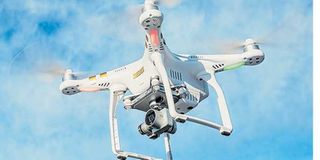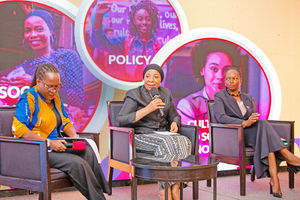New regulations seek to bring sanity to TZ drone operations

What you need to know:
The government has tightened the flying regulations that will require one to obtain a permission from the Ministry of Defence and National Service and approval from civil aviation authority.
Dar es Salaam. Are you planning to fly a drone in Tanzania for recreation or commercial purpose? If yes, you have to invest well in terms of time and cash.
The government has tightened the flying regulations that will require one to obtain a permission from the Ministry of Defence and National Service and approval from civil aviation authority.
The new directives – which were published by Tanzania Civil Aviation Authority (TCAA) on Monday last week - will also see the photography and mapping companies injecting cash on covering all their drones with liability and third party insurance which was not the case in the past.
Initially, drone owners say they used to fly at noon during the convenient weather but not near airports, security areas like military bases and government buildings.
Drones have recently been used in mapping, producing high resolution aerial photographs and videos for music, news production, agricultural and civil engineering activities.
The ongoing innovation has seen the machines becoming more useful even in delivering basic services like medicines in remote rural areas.
The circular dubbed TCAA/FRM/ANS/AIS-30 that has been cited by TCAA requires all light, medium and large unmanned aircraft operators abide by the new directive and that a drone will not be accepted onto the Tanzania register unless they have been designed, constructed, and tested to acceptable design standards.
“Previously operated Unmanned Aircraft will not be accepted unless they have been owned, since new, by the person who is importing them…..In this case, a change of ownership may not be accepted until the aircraft has been in Tanzania for 12 months unless approved otherwise by the authority,” part of the circular published earlier January this year says.
An individual or a company that plans to authorize the drone will have to attach some important documents including evidence that the aircraft type has been previously certified to an acceptable design code and the report from a competent person demonstrating that the machine has a safety record in service, acceptable to the authority for its intended use.
In the case of used unmanned aircraft, TCAA wants applicants to provide complete records to demonstrate that the aircraft has been maintained and overhauled as required.
Apart from the general rules, TCAA requires operators to have liability and third party insurance cover from a recognized insurance.
Some drone operators told The Citizen that they have received the order with shock though they will abide by the new rules as the devices are new in Tanzania.
Varoon Sampat of HV PhoDeGraphy believes the decision is good as it seeks to bring sanity into the way the drones fly.
“Now that the directives are in place, it would be difficult for us to fly at our own will as we used to. However, I am sure with things being systematic at both TCAA and ministry of defense, everything should be smooth,” he said.
He said though drones are fun gadgets, there a lot of risks involved in operating them. Drones can hurt people by their sharp blades. They can also damage properties when accidents occur.
Mr Sampat said though the new insurance order will add to the cost of operation a drone, it will also be good for the devices to be insured.
The Tanzania Commission for Science and Technology (Costech) director of innovation and entrepreneurship, Dugushilu Mafunda said
though they have been using drones in a number of its survey projects, they are not allowed to fly them without authorization from TCCA.
He said whenever Costech finds a reason to make use of drones, they seek authorization from TCCA with respect to the reason behind the exercise and height required to fly the drone and the purpose.
“When we started our surveys and especially those that entailed using drones, we were told to seek authorization from TCAA because they have to be aware of the exercise so they can be able to control the public from misusing the service,” he said.
According to him, TCCA’s decision to control the use of drones is to ensure they don’t interfere with other aviation communication bodies as currently the public uses drones in wedding, agricultural activities and surveys among others.
TCAA public information officer Bestina Magutu said it takes one day to register the drone and get flying.
“After getting a permit from the Ministry of Defense, one should spend only a single day to register it and get permit to fly,” noted Ms Magutu.




